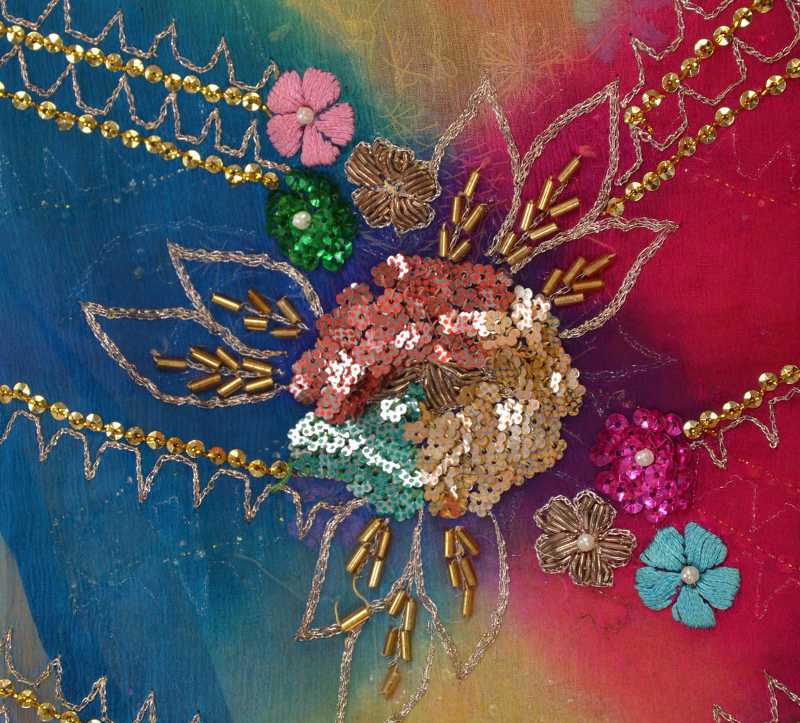===
0277,
9
===

=== |
 |
kyā lut̤f hai vagarnah jis dam vuh teġh kheñche
sīnah sipar kareñ ham qat̤ʿ-e naz̤ar karo tum
1a) what delicacy/pleasure/grace there is! --otherwise, at the moment he would grasp the sword
1b) what delicacy/pleasure/grace is there, otherwise? --at the moment he would grasp the sword
2) we might 'make our breast into a shield'; you might avert your gaze
lut̤f : 'Delicacy; refinement; elegance, grace, beauty; the beauty or best (of a thing); taste; pleasantness; gratification, pleasure, enjoyment; —piquancy, point, wit; —courtesy, kindness, benignity, grace, favour, graciousness, generosity, benevolence, gentleness, amenity'. (Platts p.957)
varnah : '(contrac. of va agar nah ), conj. And if not, otherwise, or else'. (Platts p.1189)
sipar : 'A shield, buckler, target'. (Steingass, p.651)
FWP:
SETS == KYA; MIDPOINTS; VARNAH
MOTIFS == SWORD
NAMES == EXECUTIONER
TERMS == VERSE-SETSee {277,8} for further discussion. The present verse is tightly bound to the previous one within a verse-set, such that it can hardly stand at all on its own. For the operative sense of lut̤f as 'delicacy' (of the hair-thin neck) can only exist if it's imported from {277,8}.
The clever 'midpoint' use of vagarnah (the long form of varnah ) combines with the multivalence of kyā to create two somewhat different readings of the first line. One reading exults in the lut̤f of what we know from {277,8} to be the lover's making his neck as thin as a hair.
For otherwise, the execution process might prove imperfect: the lover might somehow try to shield his neck, or the beloved might turn aside (1a). This is the sense of 'make our breast into a shield' that SRF adopts. (But see {74,6}, in which its sense is quite opposite, and conveys heroism and self-sacrifice.) The other reading emphasizes the risks, the lack of lut̤f , if the lover's neck were not so thin (1b).